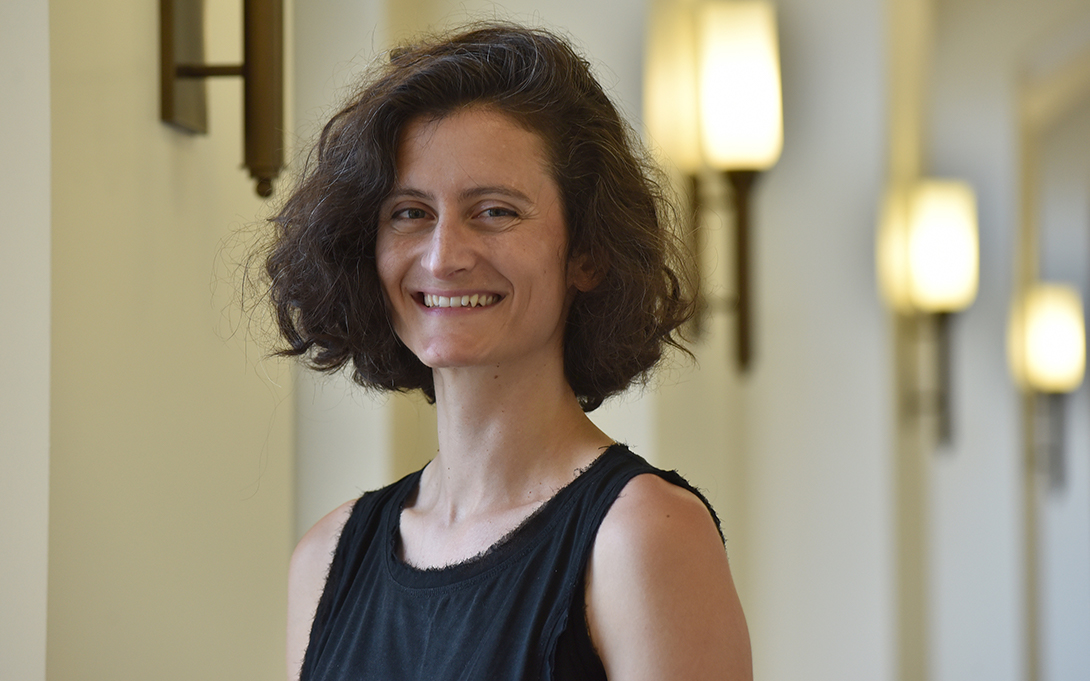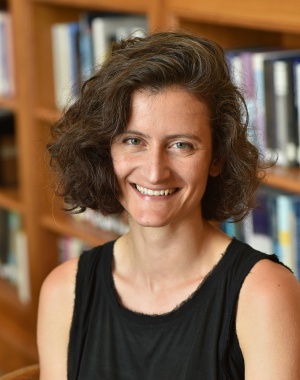
Charlotte Cavaillé is an assistant professor of public policy at the Ford School, who is arriving at the Ford School after a year as a visiting fellow at Princeton University's Center for the Study of Democratic Politics. She comes to the Ford School from Georgetown University, where she was an assistant professor at the School of Foreign Service. Through her research, which has appeared in the Journal of Politics and the American Political Science Review, Cavaillé examines the dynamics of popular attitudes towards redistributive social policies at a time of rising inequality, high fiscal stress, and high levels of immigration.
Ford School: Charlotte, welcome to Ann Arbor! What are you working on these days?
Right now I am wrapping up my book manuscript (Asking for More: Support for Redistribution in the Age of Inequality) and related papers on attitudes toward redistribution and the welfare state in high inequality countries. Another project that is also coming to an end is a methodological project on how to measure not only what people want (e.g. more or less redistribution) but how much people want it (e.g. is it a top priority, something they care intensely about or not). Jointly, these two projects seek to improve our understanding of how objective economic conditions (including income inequality) affect support for economically progressive policy agenda. Evidence shows no relationship between the two (objective conditions and mass support) and most of my research seeks to improve our understanding of this disconnect.
I have also recently started two new projects:
One examines what differentiates cultural "authoritarians" from cultural "libertarians". These differences predict one's position on what political scientists call "the second dimension" of political competition. The first dimension opposes people who support high taxation, low inequality and a large welfare state to people who want less taxation, do not worry about inequality and believe the state has only a limited role to play in helping people out of economic hardship. The second dimension distinguishes people on issues such as immigration, the death penalty or gay rights. The correlation between the two is usually low (with the U.S. being the exception). Researchers have good theories about the first dimension but not the second.
The second project tries to map how people in Europe and the U.S. make sense of large deficits and large sovereign debt. I have been interested in this issue for a while, but COVID-related spending has made it even more relevant.
FS: What courses do you enjoy teaching?
At the graduate level, my favorite courses combine research across the social sciences to speak to an important issue of our time (e.g. income inequality and redistribution, the rise of populism, the politics of immigration). No single field has the monopoly on how to best tackle these issues and students always surprise me with how they react to different types of approaches, findings and arguments. I usually learn a lot myself and develop new research ideas.
At the undergraduate level, my favorite courses are introductory courses to politics (or comparative politics). Politics is the realm of mediocre compromises; there is no way around this reality. I try to give students the tools to turn the disappointment they might experience about the nature of politics into a productive inquiry into how politics work and how to best push for change. Current events, be it the COVID pandemic or the Black Lives Matter movement, have been an opportunity for me to totally rethink such a course. I very much look forward to the fall semester!
FS: What are you reading right now?
The Enigma of Reason by Sperber and Mercier, as well as The Code of Capital by Katharina Pistor.
FS: Is there anything else you’d like to share with us?
I just want to say that I can’t wait to get started. If anybody is interested in thinking about public policy and politics in the U.S. in a comparative perspective, please drop me a line!
